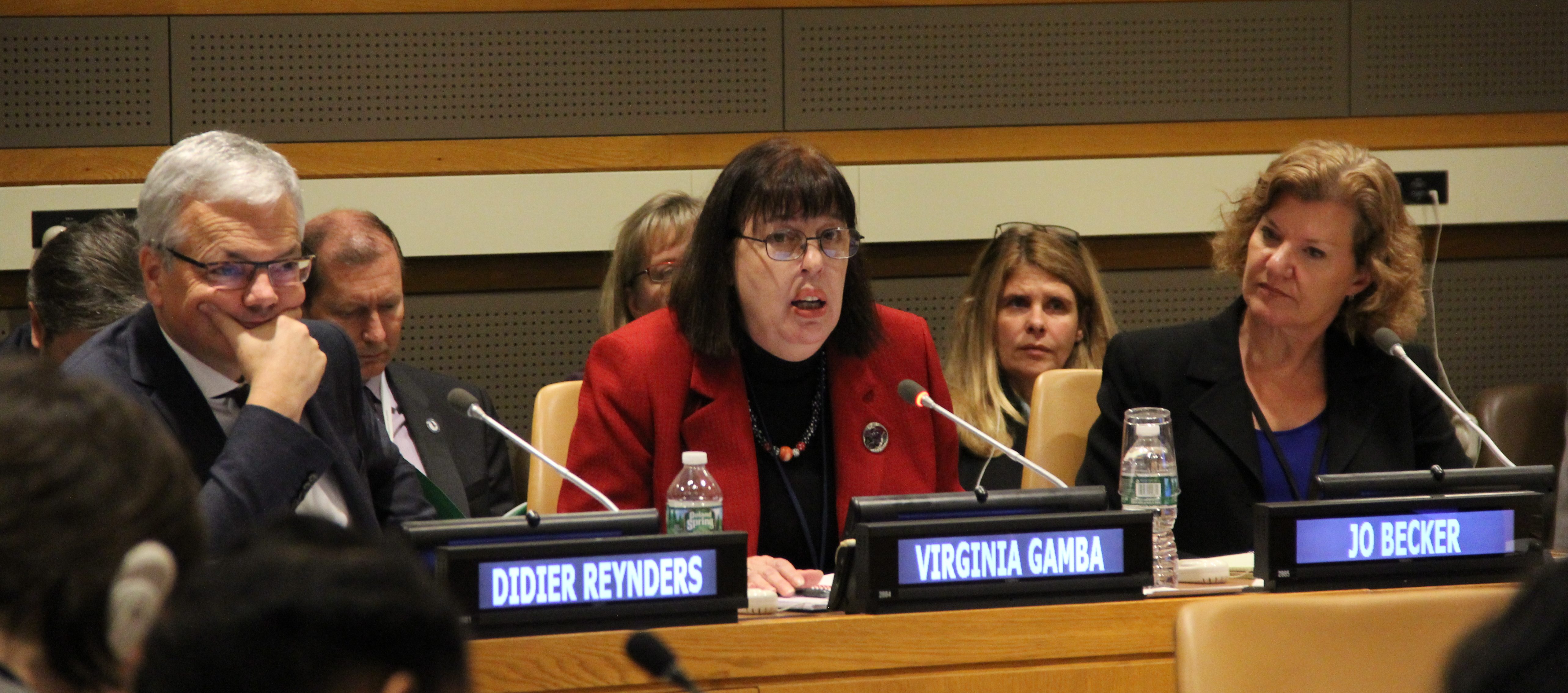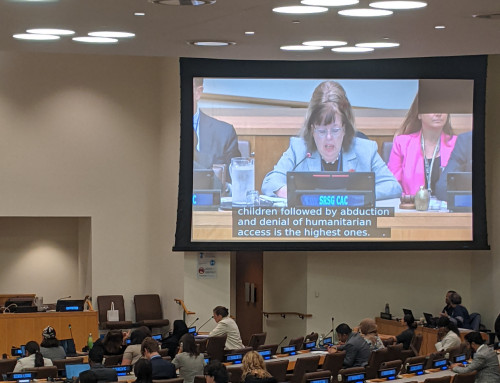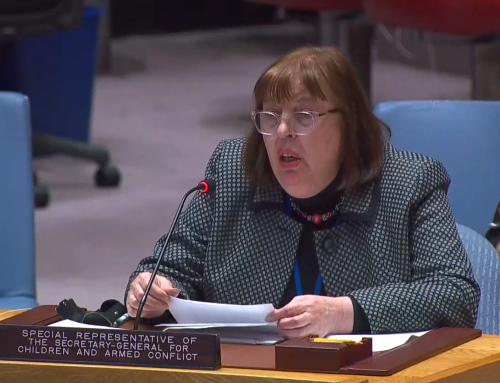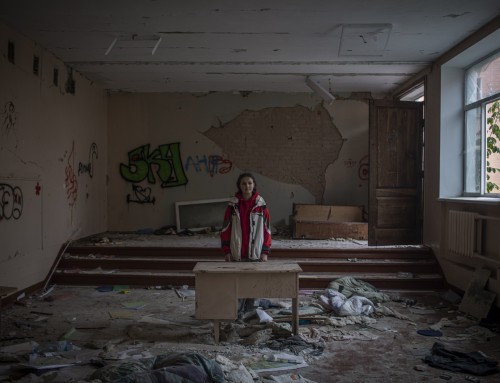High-level Side Event on Release and Reintegration of Children Associated with Armed Forces and Armed Groups
Remarks by the Special Representative for Children and Armed Conflict
Ms. Virginia Gamba
30 October 2017
Your Excellency, Mr. Didier Reynders, Deputy Prime Minister of Belgium and Minister of Foreign Affairs and European Affairs,
Mr. Anthony Lake, Executive Director of UNICEF,
Mr. Representative of France
Ms. Tasha Gill, Senior Advisor, Child Protection in Emergencies,
Ms. Jo Becker, Advocacy Director, Children Right’s Division, Human Rights Watch,
Mr. Aliou Maiga, Chief of Child Protection, UNICEF Central African Republic (By VTC),
Excellencies, dear Colleagues, Ladies and Gentlemen,
I wanted to first sincerely thank UNICEF and its Executive Director for his personal dedication and interest in the crucial issue of release and Reintegration of Children Associated with Armed Forces and Armed Groups, but also for his long commitment to the Children and Armed Conflict agenda. Your statement today sends a powerful message to the international community to pay more attention to those children.
Mr. Deputy Prime Minister,
I also want to thank you for the faithful and consistent support you and your Government have provided to the mandate on Children and Armed Conflict since its establishment.
Dear Colleagues,
Listening to today’s inspiring statements and presentations, we have legitimate reasons to celebrate progress but, sadly, we also have great cause for concerns.
In twenty years since the creation of my mandate we have made important advances:
We have a strong legal framework and a comprehensive set of principles to guide our daily work. We are now engaged in action plans with all Government security forces listed for the recruitment and use of children except for one party and we have strong progress to report for most of these countries. This was inconceivable 20 years ago.
We know of at least 124 000 child soldiers who were released due to the collective efforts of child protection actors, perhaps most notably UNICEF, since 2000. In 2016 alone, more than 9000 children were released from the ranks of Armed Forces and Armed Groups in CAR, South Sudan, Sudan, Colombia, Somalia, DRC, Myanmar, Nigeria and the Philippines. The dialogue with non-State Armed Groups resulted in the signing of two action plans in Mali and the Sudan. In the Central African Republic, 3897 children some as young as eight were released and in the Philippines more than 1,850 children were separated from the military wing of the Moro Islamic Liberation Front. In Nigeria, the UN has been granted access to Giwa Barracks enabling the release and reintegration of 1300 children.
And yet, despite the progress achieved, we cannot ignore that thousands of children are still recruited and used by Armed forces and Armed groups and endure despicable violence and horrors. In the coming years, we have to broaden our engagement with Non-State Armed Groups to increase the number of children released which is why my Office is currently developing a strategy based on the new vision of the Secretary-General of enhanced engagements to stop violations.
But even if we proceed in the release of children, this is useless without reintegration. We should not walk away, we cannot give up on these children. Each child released needs specific physical and mental health support to overcome the long-term effects of war, but also education and skills to assist their communities. If we do this, we have a chance to deter them from being victims or re-recruited or to join criminal gangs. Reintegration also involves working with communities to avoid stigma and ensure proper reunification. These boys and girls hope that they can once again become integral members of their communities. It is critical to assess the unique needs of each child and each community.
Excellencies, Ladies and Gentlemen,
Having outlined the importance and challenges of reintegration of children affected by war, I would now like to speak about solutions and principles of reintegration.
First and foremost, the best interest of the child must be at the heart of any reintegration program. Yet, it is very easy to lose sight of this principle when there are competing political or economic interests. Another fundamental principle is that children associated with Armed Forces or Armed Groups should be considered primarily as victims. If they are accused of serious crimes allegedly committed while they were associated with Armed Groups, wherever possible, alternatives to prosecution and detention should be found in order to facilitate reintegration and avoid further stigmatization. This principle is particularly important to keep in mind in the context of Armed Groups who use tactics of terrorism.
Also, the specific needs of girls have to be taken into consideration. Girls have unique vulnerabilities due to their gender and status in society and suffer specific consequences of rape and sexual violence such as pregnancy and pregnancy related complications, stigma and rejection by families and communities.
Ladies and Gentlemen,
Today, we have a unique opportunity to underline the fundamental importance of reintegration. My Office has pleaded in the past and will continue to plead for the UN, NGOs and Member States to make concrete commitments to better support the children who need reintegration by establishing long-term multi-year mechanisms for the reintegration of recruited and used children, including by placing a specific focus on girls and on psychosocial and education programmes and vocational training. Adequate long-term funding is vital to implement and sustain such programmes.
All children used and abused by Armed Conflict should be given a real chance to create their own future. While the cost of separation and reintegration may seem large, it is insignificant compared to the HOPE of a better future. Let us give them hope.






